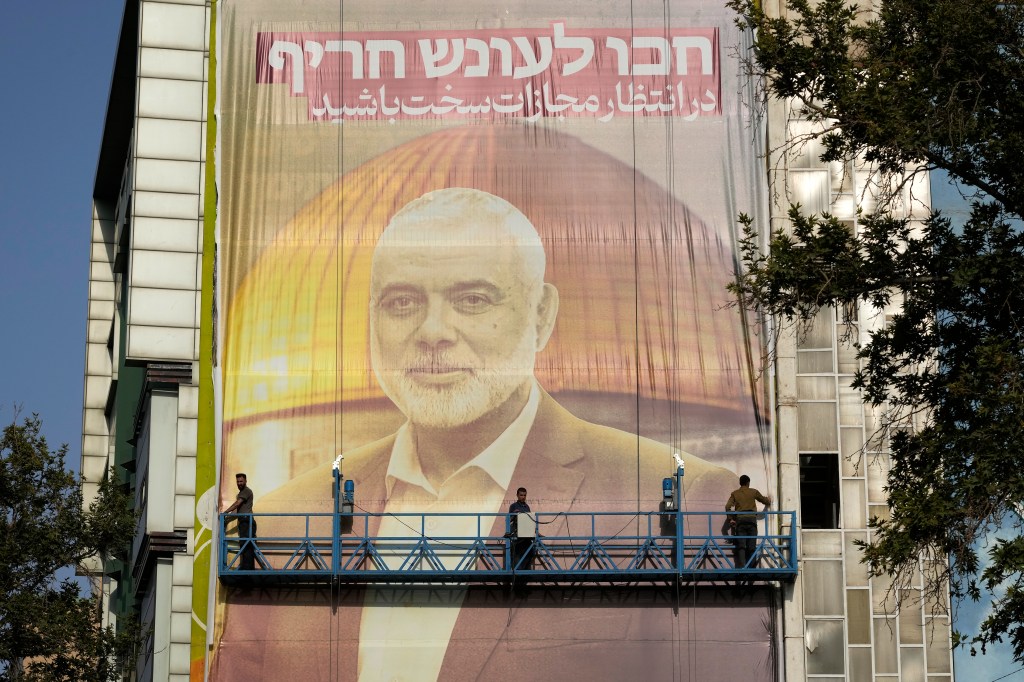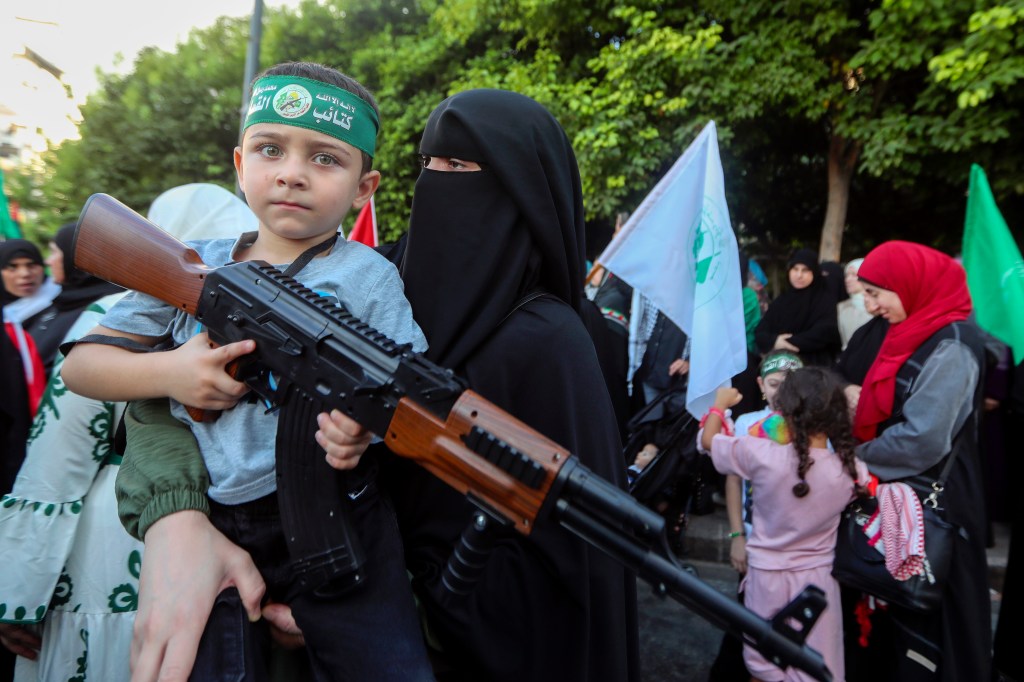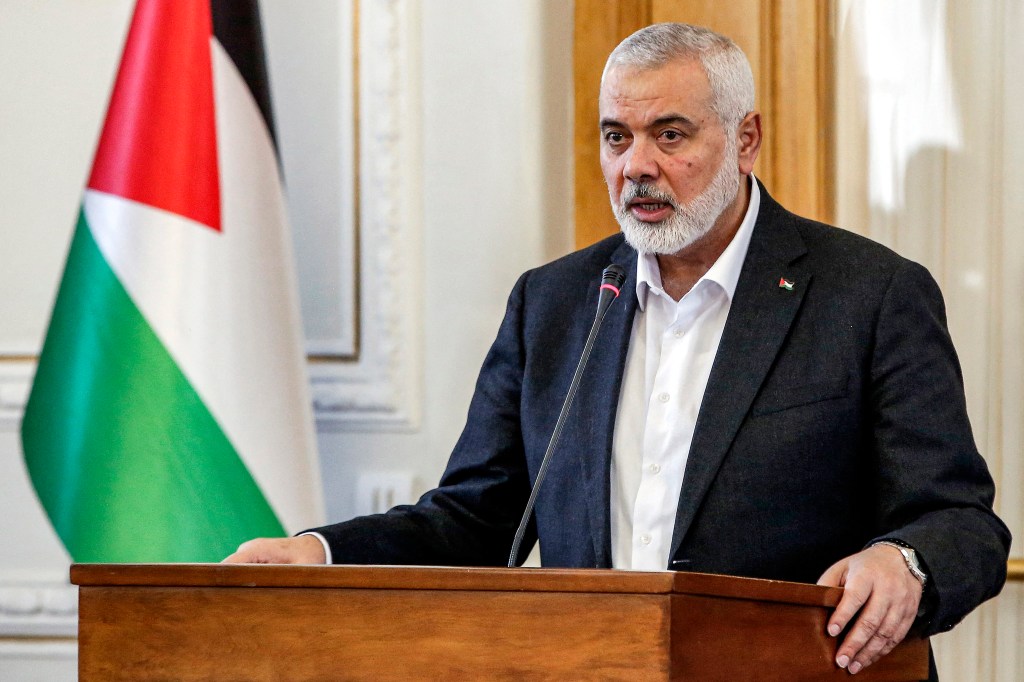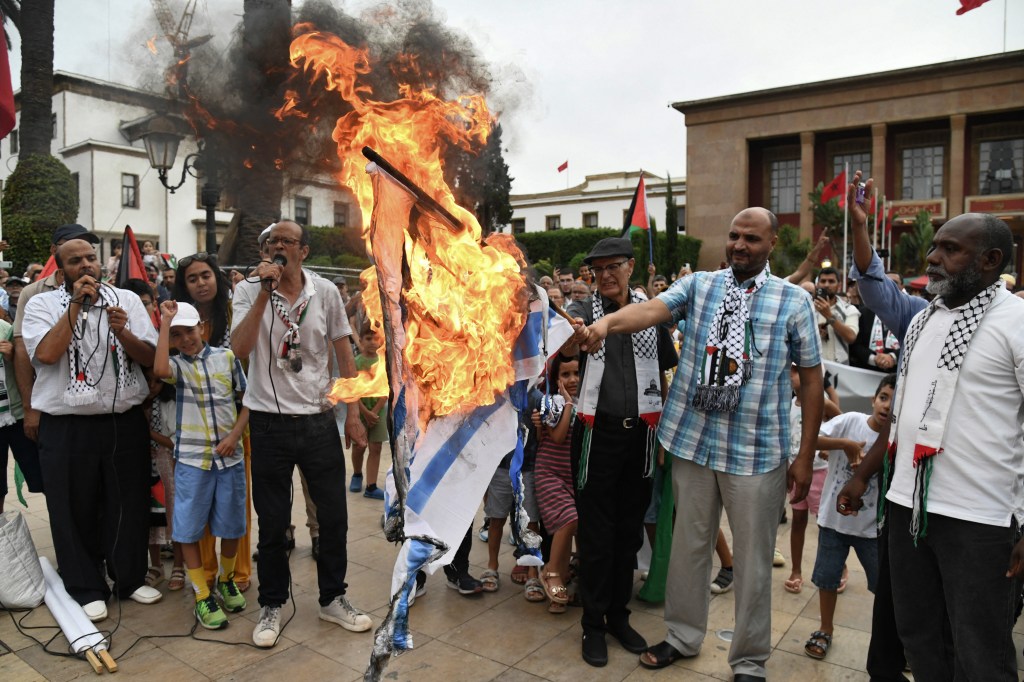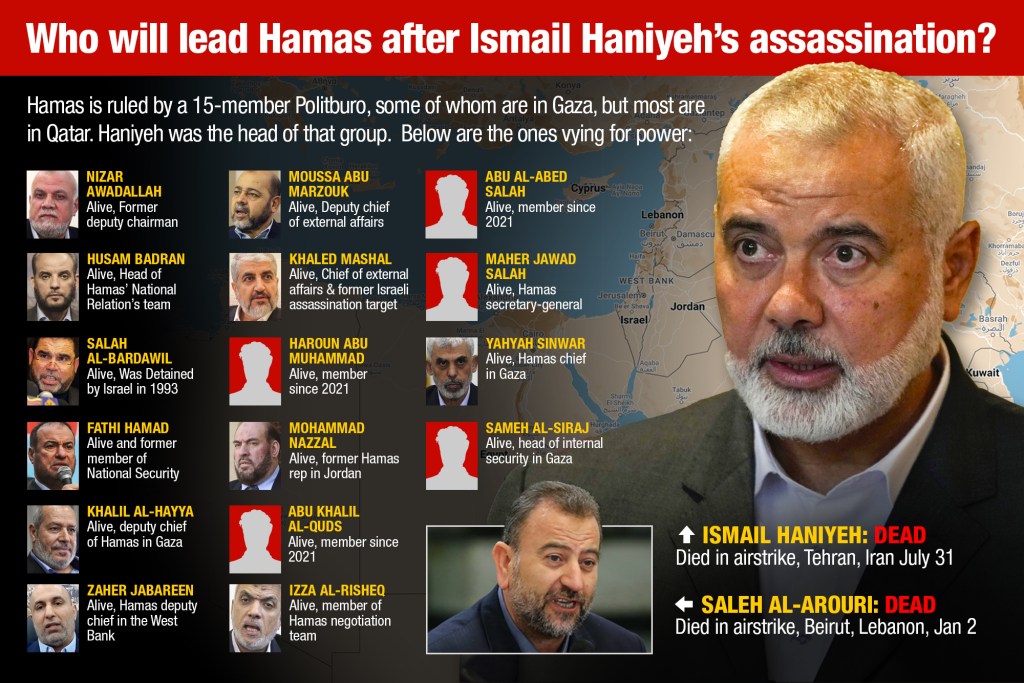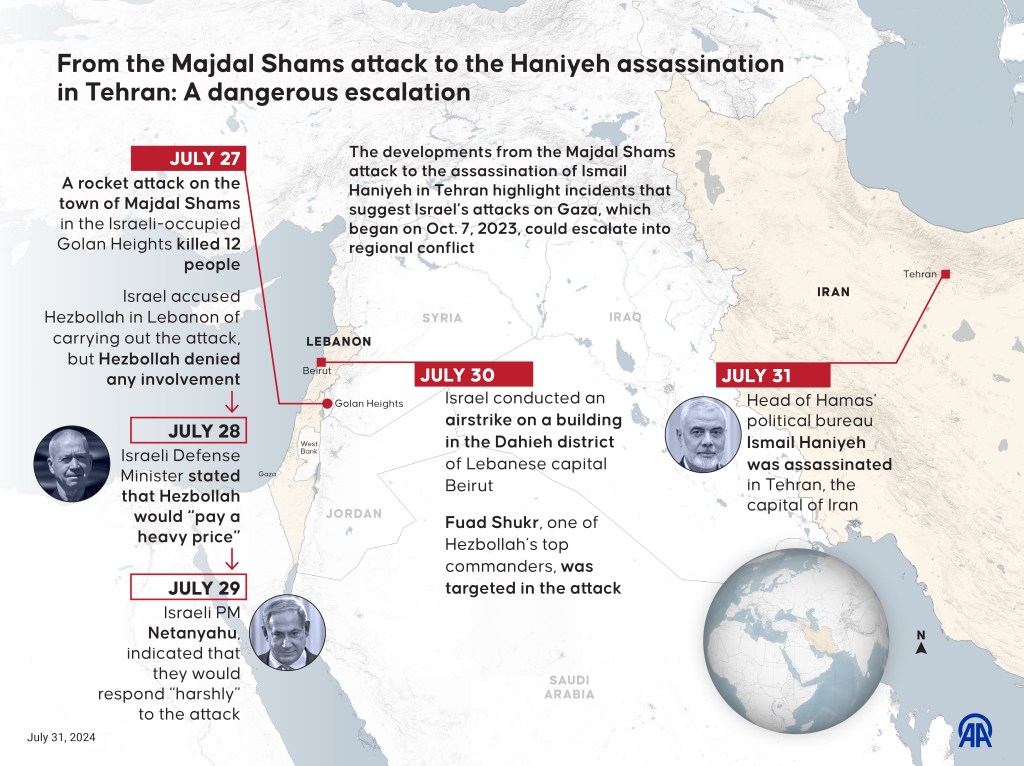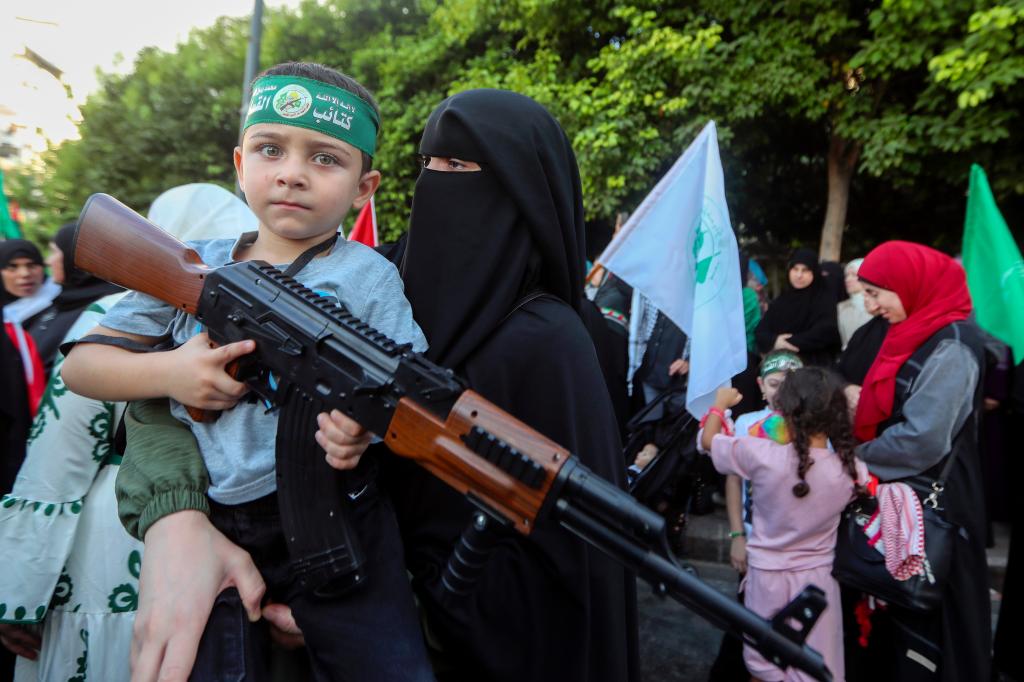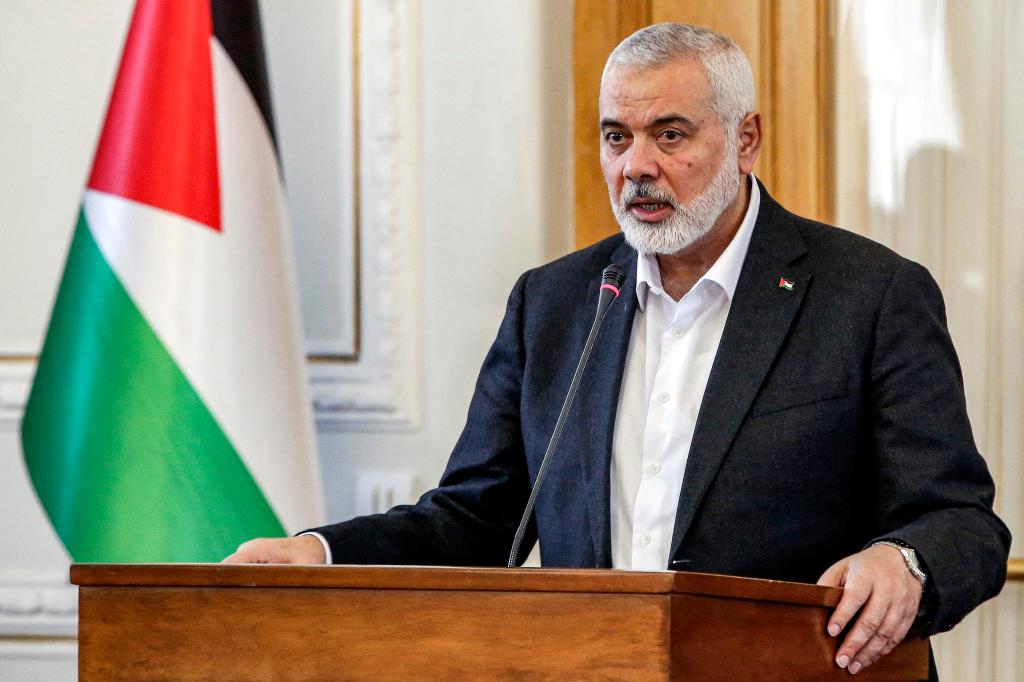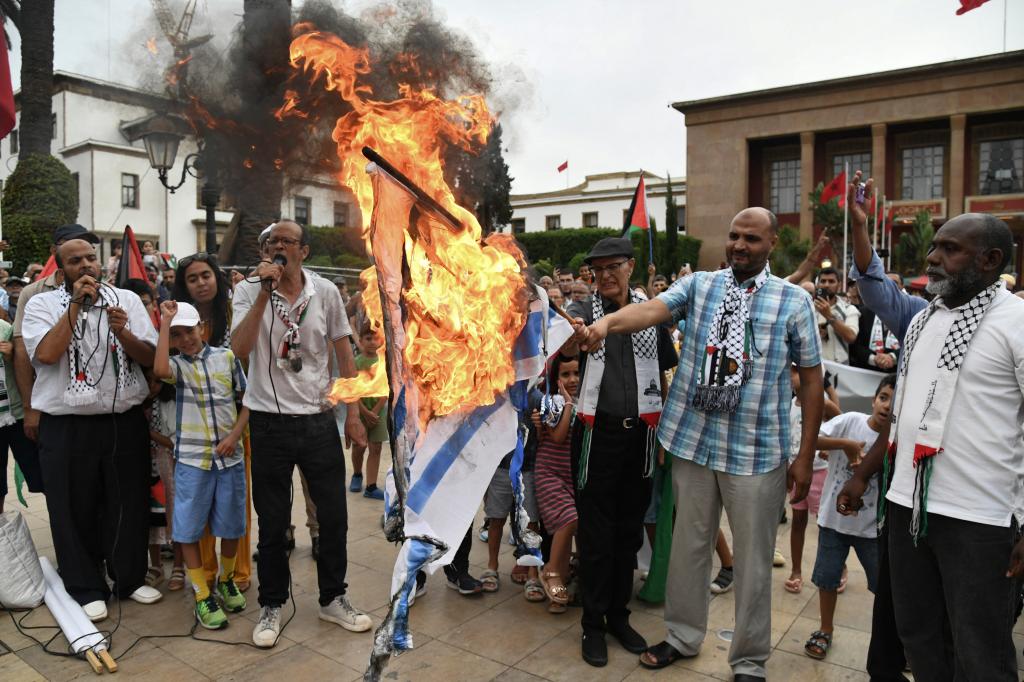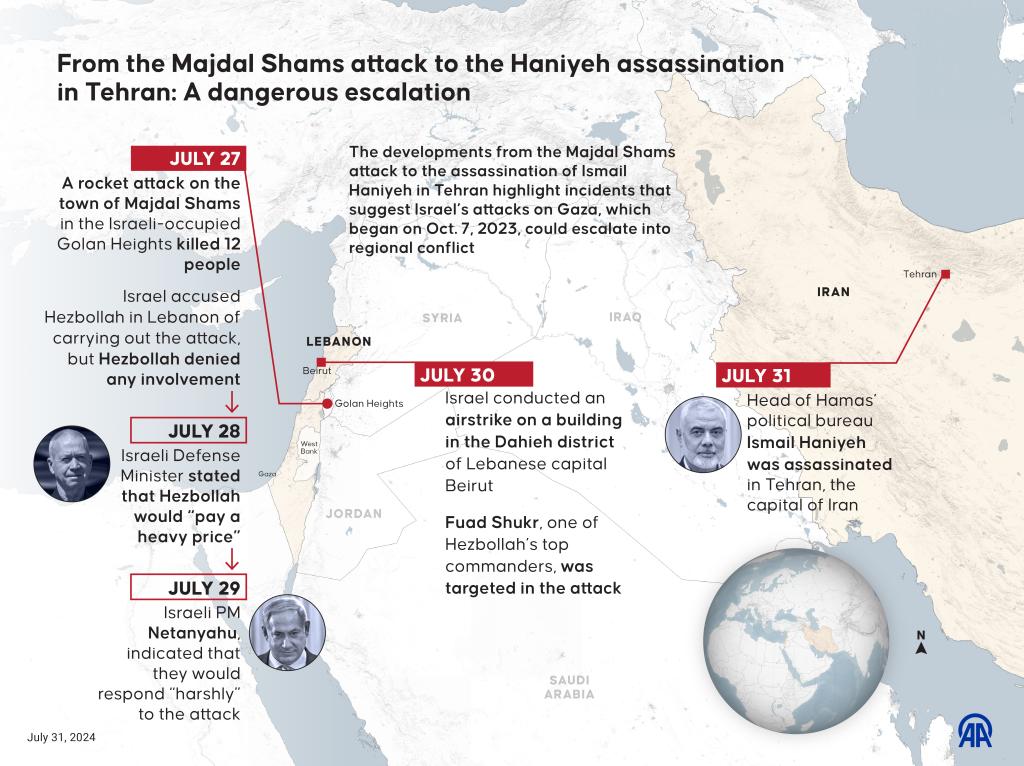Hamas chief Ismail Haniyeh was killed in precision strike on his room during visit to Iran
Hamas’ top political leader, Ismail Haniyeh, was assassinated during a visit to Iran in what the terror group claimed was an “airstrike” directly on his room that was conducted by Israel early Wednesday.
His death dramatically escalates tensions in the Middle East and raises the specter of all-out war between the Jewish state and Iran and its proxies. It has also led to the breakdown of the Gaza hostage negotiations — at least for now.
Haniyeh, the de facto face of Hamas, was in Tehran to attend the inauguration ceremony of Iran’s new president when he was killed “in a Zionist airstrike on his residence,” according to Iran’s Revolutionary Guard Corps (IRGC).
Israel has yet to comment directly, but Defense Minister Yoav Gallant did not rule out the possibility that war will break out across the Middle East after Hamas and Iran vowed to retaliate.
“We don’t want war but we are preparing for all possibilities,” Gallant warned.
Iranian news channels claimed Haniyeh was staying in a residence for war veterans in Tehran’s Velenjak district, with the blast occurring around 2 a.m. local time.
Khalil Al-Hayya, the Hamas official leading the cease-fire talks with Israel, said Haniyeh was hit directly by a rocket in the room he was staying in, according to Iranian media reports.
Who was Ismail Haniyeh, the Hamas leader killed?
Ismail Haniyeh, one of the most senior Hamas officials, was killed by a bomb that was smuggled into the Tehran guesthouse where he was staying.
Haniyeh was in Tehran to attend the inauguration ceremony of Iran’s new president.
Born in the then-Egyptian-occupied Gaza Strip in 1963, Haniyeh had been a prominent member of Hamas since the 1980s and, in 1989, spent three years imprisoned by Israel during the first Palestinian uprising.
Upon his return to Gaza in 1997 after spending years in exile with other Hamas leaders, Haniyeh was appointed leader and president of the political bureau of Hamas, solidifying his influence and power within the organization.
In 2006, President Mahmoud Abbas appointed Haniyeh as Palestinian prime minister after Hamas won the most seats in national elections. He was then elected head of Hamas’ political bureau in 2017 and was widely considered Hamas’ overall leader until his death.
Before the killing, Israel vowed to eliminate Haniyeh and other Hamas leaders following the terror group’s Oct. 7 attack on the Jewish state in which 1,200 people were killed.
An Israeli airstrike killed three of Haniyeh’s sons and four of his grandchildren, who were traveling in a car through Gaza’s Shati refugee camp to visit family on the first day of the Muslim holiday Eid-al-Fitr in April 2024.
It remains unclear whether Haniyeh was killed via an airstrike or by a drone attack.
The IRGC-affiliated Sabereen News also posted pics of a burned-out building in the area, claiming it was Haniyeh’s residence inside the military camp. The Post could not verify the accuracy of the photos circulated by the Iranian outlet.
Iranian state media IRNA said Haniyeh’s bodyguard was also killed in the attack, with officials launching an investigation on how the projectile hit the residence.
Despite the silence from Israel over the attack, Colin Clarke, a counter-terrorism expert at New York-based Soufan Group, told The Post that the attack has all the hallmarks of a strike by the Jewish state.
“No one else has the motives and means to carry out this kind of attack,” he said. “Israel, however, always remains silent whenever it operates on Iranian soil.”
The attack that killed Haniyeh was conducted less than 24 hours after Israel killed a senior Hezbollah commander believed to have been behind Saturday’s deadly attack in the Golan Heights, which killed 12 children.
Clarke said the fallout from the strike on Hamas’ top political leader could cause an embarrassed Iran to lash out and overreact against Israel.
An escalation could mean the war in Gaza spreads to include Iran and its terrorist proxies Hezbollah in Lebanon and the Houthi rebel group in Yemen.
“The attack has crossed all the red lines and the established rules that were set have all been cast aside,” Clarke said. “It brings things to the brink of an all-out war.”
Iran’s initial response will likely come sooner rather than later. Iran’s Supreme Leader Sayyed Ali Khamenei ordered a direct attack on Israel in response to Haniyeh’s death, Iranian officials told the New York Times.
Israeli Prime Minister Benjamin Netanyahu warned that the Jewish state “will settle our score with anyone who harms us” during a meeting in Tel Aviv on Wednesday.
“Everyone who takes aim at our children, everyone who murders our citizens, everyone who harms our country — their blood is on their own head,” he warned.
Officials in the United Arab Emirates, a major power in the Middle East, said it was closely monitoring the situation over fears that the entire region will be thrown into instability.
“[The UAE] expresses its deep concern over the continued escalation and its repercussions on security and stability in the region,” the nation’s Foreign Ministry said in a statement.
Qatari Prime Minister Sheikh Mohammed bin Abdulrahman bin Jassim Al Thani, whose government has been leading the cease-fire negotiations, warned that Haniyeh’s killing might have just upended months of work to help stop the fighting in Gaza and free the hostages.
“Political assassinations and continued targeting of civilians in Gaza while talks continue leads us to ask, how can mediation succeed when one party assassinates the negotiator on the other side?” the prime minister said in a statement.
With Post wires








